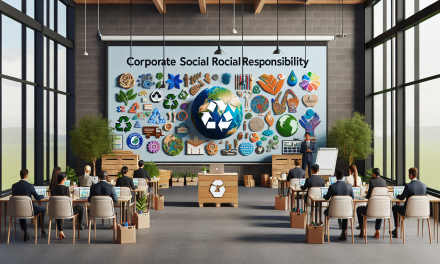Table of Contents
- Introduction
- The Importance of Communication Skills
- Core Public Relations Skills
- Administrative Communication
- Effective PR Strategies
- FAQs
- Conclusion
Introduction
Public relations (PR) and administration communication skills serve a vital role in shaping the way organizations interact with their stakeholders. Whether in a corporate setting, a non-profit organization, or a governmental body, effective communication is key to establishing trust, conveying messages clearly, and fostering strong relationships. In this blog post, we will explore the essentials of public relations and administration communication skills, focusing on core competencies that can bolster your career and help you achieve your goals.
The Importance of Communication Skills
In today’s fast-paced world, communication skills are more important than ever. Effective communication helps to ensure that messages are understood, followed, and appropriately acted upon. Strong communication skills enable professionals to engage with diverse audiences and adapt their messaging accordingly. Furthermore, robust communication fosters collaboration and strengthens team dynamics, which is essential both in public relations and administration.
Core Public Relations Skills
Mastering the following core public relations skills can significantly enhance your effectiveness and impact within your organization.
Writing Skills
One of the most critical skills in public relations is the ability to write clearly and persuasively. This includes creating press releases, articles, blog posts, social media content, and more. Strong writing skills help PR professionals craft messages that resonate with audiences, build brand identity, and drive engagement.
Verbal Communication
Verbal communication is another essential aspect of public relations. Whether you are speaking to a large group or managing conversations with clients, your ability to articulate ideas, provide feedback, and engage with stakeholders will significantly influence your success. Practice being relatable, concise, and approachable during conversations.
Listening Skills
Listening is often overlooked, yet it is vital in effective communication. Actively listening to feedback, concerns, and suggestions demonstrates respect for your audience and enables you to respond appropriately. By honing your listening skills, you can better understand your stakeholders and tailor your communication accordingly.
Non-Verbal Communication
In addition to verbal and written communication, non-verbal cues can significantly impact your interactions. Body language, eye contact, and tone of voice all convey messages. Being aware of your non-verbal communication can enhance your overall effectiveness and help convey confidence and transparency.
Administrative Communication
Effective communication within administrative functions is equally important, as it drives efficiency and fosters a positive working environment.
Internal Communication
Internal communication involves how information flows within an organization. Ensuring that employees are kept informed, engaged, and motivated requires clear internal messaging. This includes regular updates, feedback mechanisms, and fostering an open-door policy that encourages dialogue among all levels of staff.
External Communication
External communication focuses on how organizations communicate with the outside world, including media, clients, and stakeholders. Building relationships with external parties is crucial for maintaining positive brand perception. Effective external communication involves not only delivering messages but also listening and responding to feedback.
Effective PR Strategies
To navigate the complexities of public relations, implementing effective strategies is essential. These strategies help in managing communication and public perception.
Mastering Media Relations
Developing strong relationships with media representatives is vital for successful PR. By understanding journalistic needs and maintaining regular contact, PR professionals can ensure their organizations receive coverage. For further insights, check out Mastering Media Relations: Your Gateway to Effective Public Relations Strategies.
Empowering Enterprises Through Corporate Social Responsibility Training
Corporate social responsibility (CSR) initiatives can strengthen an organization’s public image. Training in CSR can empower your organization to implement socially responsible practices, which can lead to improved stakeholder relations. Explore more on this topic with Empowering Enterprises Through Corporate Social Responsibility Training.
Mastering the Art of PR Campaign Planning and Management
Effective PR campaigns require strategic planning and management. Understanding the elements of a successful campaign can enhance your organizational impact, and you can learn more through Mastering the Art of PR Campaign Planning and Management.
Unlock Your Potential in Protocol and Event Management
Event management is a crucial aspect of public relations, as it provides a platform for connecting with stakeholders directly. Dive deeper into this subject with Unlock Your Potential in Protocol and Event Management.
Corporate Communications for Aspiring Professionals
Enhancing corporate communications can greatly improve how an organization is perceived. Aspiring professionals can gain valuable insights from Mastering Public Relations & Corporate Communications: Insights for Aspiring Professionals.
If you want to develop your skills further, consider exploring comprehensive resources like the Master Public Relations & Communication Skills Course.
FAQs
What are the key components of public relations?
The key components of public relations include media relations, strategic communication, community engagement, crisis management, and internal/external communication.
How can I improve my communication skills for PR?
You can improve your communication skills for PR by practicing writing and speaking, actively listening, seeking feedback, and learning from experienced professionals in the field.
Conclusion
In summary, mastering public relations and administrative communication skills are essential for success in today’s competitive landscape. By honing your writing, verbal, listening, and non-verbal communication skills, and implementing strategic PR practices, you can effectively influence your organization’s messaging and reputation. Embrace the journey of continual growth in communication and watch your career flourish.





